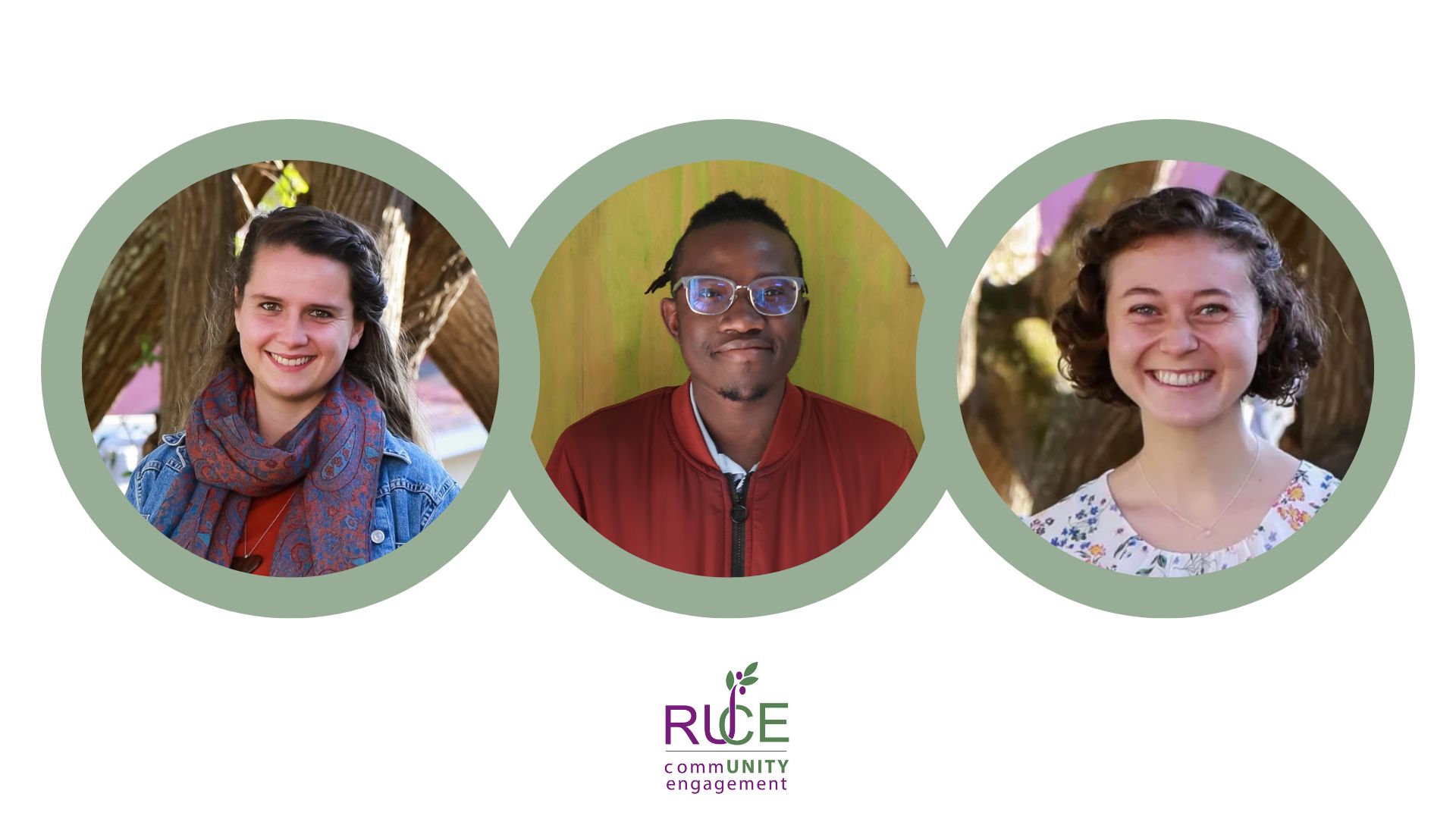
Rhodes University Community Engagement team members Anna Talbot, Claire McCann and Nigel Machiha were placed semi-finalists of the Geneva Challenge 2022! This year, there was over 80 final submissions in the global competition and the submission from the RUCE team was among the 18 selected semi-finalists.
The Geneva Challenge, or Advancing Devlopment Goals is a contest for Master students launched in 2014 with the support of Ambassador Jenö Staehelin. The contest challenges students to reflect and innovate using pragmatic and transdisciplinary approaches to address global challenges, particularly poverty reduction. Students collaborate in teams of three to five students to create theoretically sound and practical solutions to challenges.Five prizes are be distributed in each of the following categories (based on the UN Statistics list): Universities located in Africa, Asia, Europe, North America and Oceania and South America.
The Rhodes University Community Engagement team comprised Citizenship coordinator Anna, Rhodes Scholar Claire, and student leader Nigel. Their project, 'Impact' focused on addressing poverty in Africa by looking at the Early Childhood Development (ECD) sector.
The executive summary of the project describes the context of ECD in South Africa.
"Quality early childhood development (ECD) which boasts significant returns to the individual (in terms of later income prospects) and society (Heckman et al, 2012: 2), could contribute to shifting the trajectory of poverty. Thus far, however, the South African state has made little progress in expanding quality ECD to those worst off, namely children in the rural Eastern Cape province."
Their innovation involved brinnging ECD services to community members by using assets all communinties have - caring community members.
"We propose a mechanism to reach these children: a fully equipped bus, which will take a multidisciplinary team of ECD advocates and experts on a predefined route around the rural Eastern Cape. These individuals will work with a group of community champions – namely, grandparents and unemployed young people – at each site they visit, aiming to equip these champions with the resources and training to implement their own ECD interventions. This approach promotes a version of ECD where neighbourhoods and communities are not merely ECD recipients but are co-creators.
The project takes a novel approach to many ECD interventionns by shifting the significance from NGOs and government resources, to local communities to leverage skills and human resources in communities with high unemployment.
"Ultimately, this innovation serves to increase the number of children from poor homes and in rural areas accessing ECD services, to boost their development and chances of success from the earliest of years. We believe that this intervention will contribute to better primary and secondary schooling outcomes, and, in turn, to the development of a skilled young population capable not only of escaping the cycle of poverty, but also of innovating more strategies to eliminate poverty altogether."
You can access the full project proposal here.
